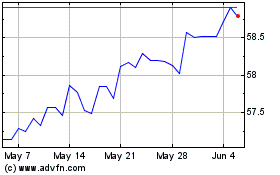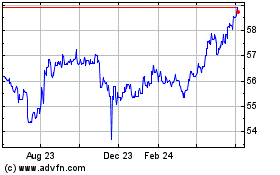Thursday, most Southeast Asian currencies tumbled against the
U.S. dollar as a decline in Asian stocks reduced demand for
emerging-market assets.
The stock markets in the Asia-Pacific region are trading weak
today, tracking the overnight cues from Wall Street, where the
major averages pulled back firmly into negative territory and moved
further off Monday's one-year closing highs. Financial stocks are
trading lower, following the lead from their U.S. counterparts.
On Wall Street, the downturn by the broader markets was
attributed in part to negative comments from influential financial
analyst Dick Bove, who downgraded his rating on shares of top U.S.
bank Wells Fargo to "Sell". The news contributed to a substantial
sell-off by financial stocks. The day's mixed earnings news and the
Federal Reserve's latest economic commentary indicating an
essential standstill in the labor market also prompted the day's
late session profit taking.
The Singapore dollar that closed yesterday's trading at 1.3904
against the U.S. currency fell to 1.3971 in Asian deals on
Thursday. The near term support for the Singapore dollar is seen
around the 1.399 level.
During Asian trading on Thursday, the Hong Kong dollar declined
to a 3-day low of 7.7510 against the U.S. currency. This may be
compared to Wednesday's closing value of 7.7502. On the downside,
7.7516 is seen as the next target level for the Hong Kong
dollar.
After a brief uptrend, the Thai baht dropped against the dollar
in Asian deals on Thursday. The pair moved from 33.3150 to 33.555
at 11:10 pm ET. This set a 1-week low for the Thai baht. If the
Thailand currency weakens further, it may target the 33.695 level.
The dollar-baht pair was worth 33.44 at yesterday's close.
Yesterday, the Bank of Thailand retained its key interest rate
at 1.25 percent per annum. The decision came in line with
economists' expectations. The Monetary Policy Committee assessed
that the current level of policy interest rate is appropriate and
supportive of the economic recovery.
Further, the MPC said the Thai economy is expected to recover
gradually, supported by the momentum of the global economy and
accommodative monetary and fiscal policies. And the inflationary
pressure from the demand side continues to be subdued for the time
being.
In Asian deals on Thursday, the Malaysian ringgit slipped to
3.3950 against the dollar. The next downside target level for the
Malaysian currency is seen at 3.40. The dollar-ringgit pair closed
yesterday's trading at 3.3645.
The Philippine peso that closed yesterday's trading at 46.61
against the dollar plummeted to 47.3550 during Asian deals on
Thursday. This set the lowest point for the peso since October 02.
On the downside, 47.65 is seen as the next target level for the
Philippine currency.
During Asian deals on Thursday, the South Korean won slumped to
a new multi-week low of 1190.15 against the dollar. If the Korean
currency declines further, it may target the 1197.8 level. The
dollar-won pair closed yesterday's trading at 1176.80.
Thursday, the Indian rupee opened lower against the US dollar.
At present, the rupee is trading at a 10-day low of 46.6750 per
dollar and this may be compared to Wednesday's close of 46.47. If
the Indian currency weakens further, it may target the 47
level.
The Taiwan dollar that strengthened against the US currency in
early Thursday Asian deals lost ground after reaching a high of
32.3095 at 9:05 pm ET. As of now, the pair is worth 32.39, compared
to 32.4050 hit late New York Wednesday. On the downside, 32.435 is
seen as the next target level for the Taiwan dollar.
In Asian deals on Thursday, the Chinese yuan soared to 6.8275
against the US dollar. The near term resistance for the Chinese
currency is seen at 6.8255. At yesterday's close, the dollar-yuan
pair was quoted at 6.8284.
The People's Bank of China has set today's central parity rate
for the dollar-yuan pair at 6.8272.
Several economic reports, which were released from China likely
influenced the yuan today.
China's gross domestic product rose 8.9% year-on-year in the
third quarter, faster than the 7.9% increase in the second quarter
and the 6.1% increase in the first quarter. It came in roughly in
line with forecasts for a 9% increase.
In addition, China's industrial production rose 12.4%
year-on-year in the third quarter, faster than the 9.1% growth in
the previous quarter and the 5.1% increase in the first
quarter.
Meanwhile, consumer prices in China increased 0.4% in September,
marginally slower than the 0.5% rise in the previous month. In the
January to September period, consumer prices fell 1.1% from the
corresponding period of the previous year.
Producer prices were up 0.6% sequentially in September. In the
January to September period, producer prices slid 6.5% from a year
ago.
Looking ahead, Taiwan will provide September numbers for
commercial sales and unemployment. Commercial sales are seen lower
by 0.9 percent on year after the 2.12 percent annual contraction in
August. The unemployment rate is expected to ease to 6.07 percent
from the current 6.13 percent.
Also, Hong Kong will announce September numbers for its consumer
price index. Forecasts call for an increase of 0.3 percent on year
following the 1.6 percent annual decline in August.
Across the Atlantic, the U..S Labor Department is due to release
its customary jobless claims report for the week ended October
17that 8:30 am ET. Economists expect a slight rise in claims to
517,000.
At 10:00 am ET, the Conference Board is scheduled to release a
report on the U.S. leading index for September. The consensus
estimate calls for a 0.9% increase in the leading indicators index
for the month.
US Dollar vs PHP (FX:USDPHP)
Forex Chart
From Jun 2024 to Jul 2024

US Dollar vs PHP (FX:USDPHP)
Forex Chart
From Jul 2023 to Jul 2024
